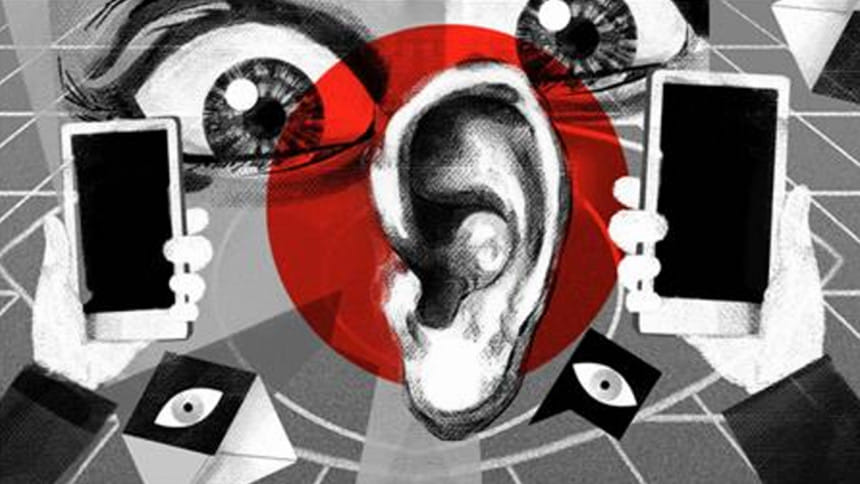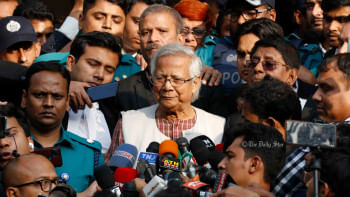A shiny new surveillance system is the last thing we need

Phone tapping has been a favourite tool for governments around the world to snoop on people. In Bangladesh we have been familiar with this term for decades. Those of us who grew up in the "analogue phone days" can recall getting goosebumps at the sound of a click or inadvertent cough in the middle of a phone conversation that hinted that someone was listening in.
In the age of unprecedented advancements in technology that we are currently in, phone tapping has become far more sophisticated and difficult to detect, though the purpose behind this invasion of privacy remains the same: surveillance of people. Which is why the idea that the Bangladesh government is about to initiate a new, AI-driven mobile phone surveillance system ahead of the upcoming elections, is more than a little disturbing. Of course, we have already read about how the government bought phone-hacking technology from Israel despite Bangladesh having no diplomatic relations with that country. But the latest acquisition as reported by Prothom Alo, will take surveillance to another, more intrusive level. The Tk 200 crore system will allow police and intelligence agencies to know the exact location of a mobile phone user along with other confidential information.
The Prothom Alo report reveals that this Integrated Lawful Interception System (ILIS) was supposed to have been introduced as far back as 2018 but the government was not prepared and so it was stalled. With the upcoming elections it is the perfect time for the government to implement this technology that will link all internet service providers, international gateways, national internet exchange service providers and mobile operators to the system of a government agency.
The existing system can track down the area where the mobile user is located. The new system can identify the exact building where a person may be in as well as track the movement of a large number of people at a time.
No matter how emphatically government officials say that the system is to be used to "curb crimes" and prevent anti-state and anti- government activities, we know what the real purpose of such intense surveillance is: to monitor the activities of the opposition, journalists and any individual who appears to be "troublesome". It will hardly be a surprise, therefore, if we find a volley of "leaked conversations" of opposition political leaders or other individuals who are deemed to be anti-government, on social media platforms.
The system, says the government, is aimed "for the safety of the people" by catching criminals and identifying crimes. And it's true that with help of phone tracking technology, law enforcers have been able to save victims of abduction and to apprehend criminals. But given the increasing number of arrests of members of the opposition and legal harassment of journalists it is hard for the public not to feel nervous about a technology that can intercept conversations and access texts from most apps.
After all, our experience with the Digital Security Act (DSA) has given us a taste of how measures taken "for our own good", in this case to fight cybercrime, have been abused to target journalists, activists, human rights defenders, writers, academics -- anyone who was deemed critical of the government. A more advanced surveillance system in an environment of intolerance of any dissenting view, is hardly good news. It is yet another tool that can legally invade individual privacy with total impunity. Is this not a total contradiction to our democratic ideals?

 For all latest news, follow The Daily Star's Google News channel.
For all latest news, follow The Daily Star's Google News channel. 





Comments